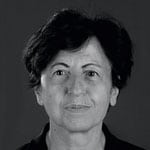

“It is an attractive market,” the staff wrote, according to the Massachusetts complaint. The top end was labeled “Pain treatment.” The bottom: “opioid addiction treatment.” The slideshow said they had an opportunity to become an “end-to-end provider” - opioids on the front end, and addiction treatment on the back end. In internal documents, the lawsuits allege, Purdue illustrated the connection they had publicly denied between opioids and addiction with a graphic of a blue funnel. In the U.S., Purdue Pharma called its secret proposal Project Tango, the attorneys general of Massachusetts and New York have alleged, and discussed it in a September 2014 conference call that included family member Kathe Sackler. The Sackler family’s pharmaceutical empire has long considered whether it might make money treating addiction, according to lawsuits filed against Purdue and the family. Grand declined to say how much Nyxoid costs Mundipharma to manufacture or how profitable it has been.

under the brand name Narcan.Ĭritics say Nyxoid’s price is excessive, particularly when inexpensive naloxone products already exist. A similar product manufactured by another pharmaceutical company has been available for years in the U.S. Nyxoid, which isn’t sold in the U.S., is more expensive than injectable naloxone, running more than $50 a dose in some European countries. But Mundipharma’s Nyxoid is the first in many countries that comes pre-packaged as a nasal spray - an easier, less threatening way for those who witness an overdose to intervene. Injectable naloxone has long been available it is generic and cheap. Patrice Grand, a spokesman for Mundipharma Europe, said in a statement that heroin is the leading cause of overdose death in European countries and nasal naloxone is an important treatment option. Mundipharma defended it as a tool to help those whose lives are at risk, and even experts who criticize the company say that antidotes to opioid overdoses are badly needed. Mundipharma’s antidote, a naloxone nasal spray called Nyxoid, was recently approved in New Zealand, Europe and Australia. This story was produced with support from the Pulitzer Center on Crisis Reporting. “You’ve got families devastated by this, and a company who sees dollar signs flashing.” “The way that they’ve pushed their opioids initially and now coming up with the expensive kind of antidote - it’s something that just strikes me as deeply, deeply cynical,” said Ross Bell, executive director of the New Zealand Drug Foundation and a longtime advocate of greater naloxone availability. Mundipharma is also pushing another strategy globally: From Europe to Australia, it is working to dominate the market for opioid overdose treatment. “That’s pretty clever, isn’t it?”Īs Purdue Pharma buckles under a mountain of litigation and public protest in the United States, its foreign affiliate, Mundipharma, has expanded abroad, using some of the same tactics to sell the addictive opioids that made its owners, the Sackler family, among the richest in the world. Andrew Kolodny, an outspoken critic of Purdue who has testified against the company in court. “You’re in the business of selling medicine that causes addiction and overdoses, and now you’re in the business of selling medicine that treats addiction and overdoses?” asked Dr. Some conference attendees were stunned when they saw the company logo: Mundipharma, the international affiliate of Purdue Pharma - the maker of the blockbuster opioid, Ox圜ontin, widely blamed for unleashing the American overdose epidemic. Save a life,” the slogan on its walls said. The gleaming white booth towered over the medical conference in Italy in October, advertising a new brand of antidote for opioid overdoses.

Please look at the time stamp on the story to see when it was last updated. This is an archived article and the information in the article may be outdated.


 0 kommentar(er)
0 kommentar(er)
